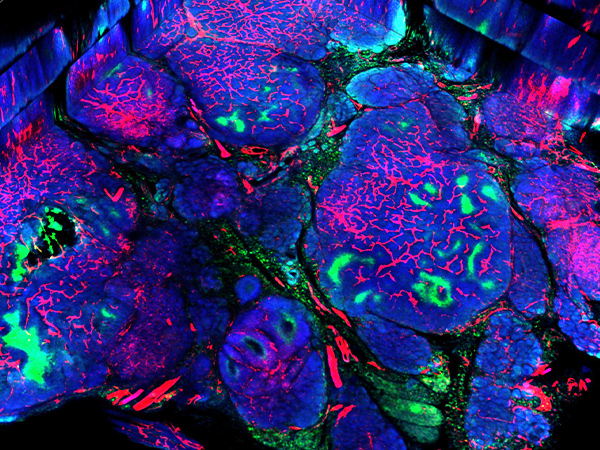Targeting HER2-positive Metastatic Breast Cancer
The FDA has expanded the use of the molecularly targeted therapeutic neratinib to include the treatment of certain patients with advanced or metastatic HER2-Positive breast cancer.

The U.S. Food and Drug Administration (FDA) has expanded the use of neratinib (Nerlynx), a HER2-targeted therapeutic, to include the treatment of certain patients with advanced or metastatic HER2-positive breast cancer.
With more than 265,000 new cases diagnosed each year, breast cancer is the most commonly diagnosed type of cancer in the United States.
About 15 percent of breast cancers have elevated levels of the protein HER2. HER2-positive breast cancer tends to be aggressive, and the outcome for patients was typically poor until research led to the development and FDA approval of HER2-targeted therapeutics. Trastuzumab (Herceptin) was the first of these groundbreaking therapeutics to be approved by the FDA, in 1998.
Although there are a number of HER2-targeted therapeutics approved for treating advanced or metastatic HER2-positive breast cancer, researchers are always looking to increase the number of treatment options for patients.
Neratinib is intended for use in combination with the cytotoxic chemotherapeutic capecitabine to treat adults with advanced or metastatic HER2-positive breast cancer whose disease has progressed despite treatment with two or more other HER2-targeted therapeutics.
Neratinib was previously approved for treating patients with early-stage HER2-positive breast cancer who have completed a year’s treatment with trastuzumab. This approval occurred in July 2017.
The new combination of neratinib and capecitabine was approved based on results from the randomized phase III NALA clinical trial. The median progression-free survival among the 307 patients who received the new neratinib and capecitabine combination showed a statistically significantly improvement compared with the median progression-free survival among the 314 patients who received another HER2-targeted therapeutic, lapatinib (Tykerb), and capecitabine (5.6 months versus 5.5 months). The median overall survival among those who received neratinib and capecitabine was greater than the median overall survival among those who received lapatinib, although the difference was not statistically significant (21 months versus 18.7 months).